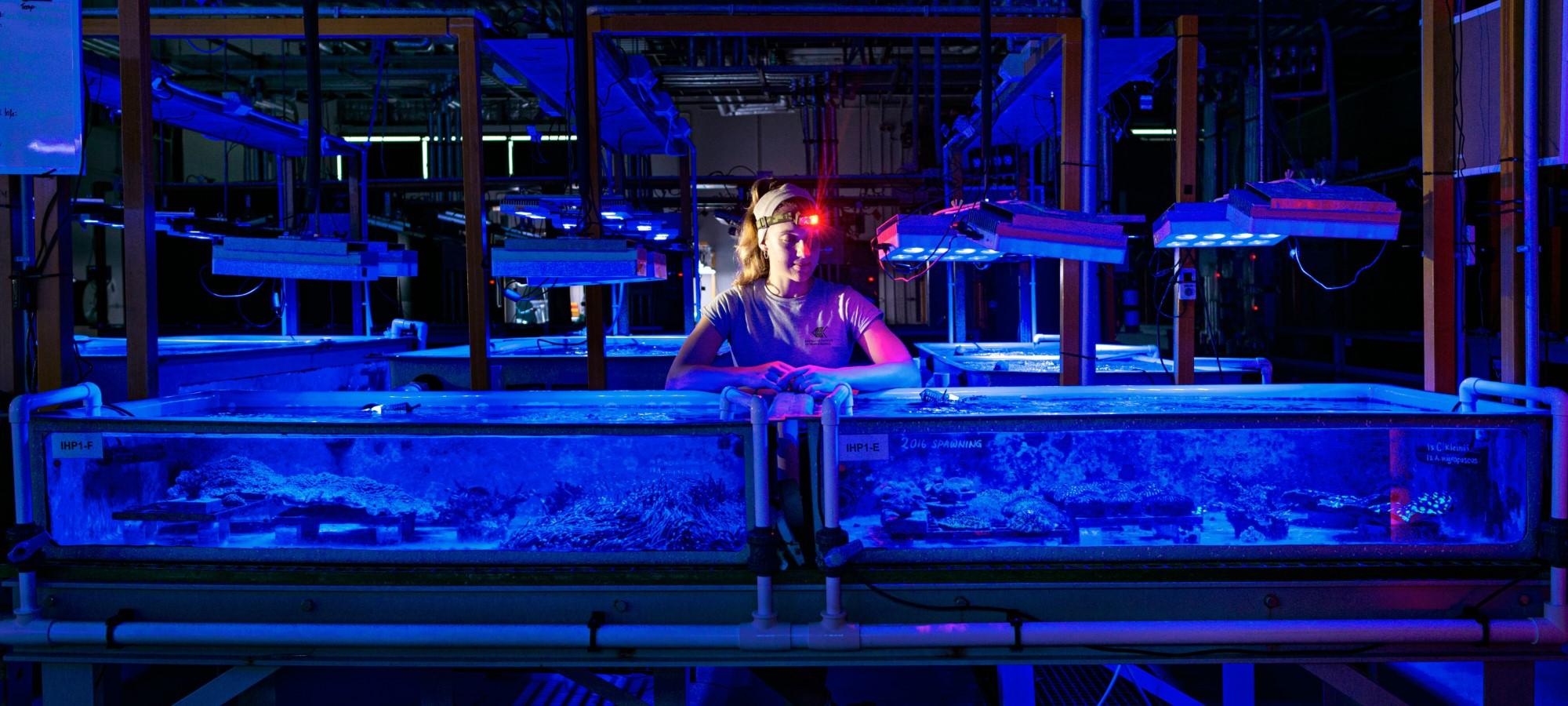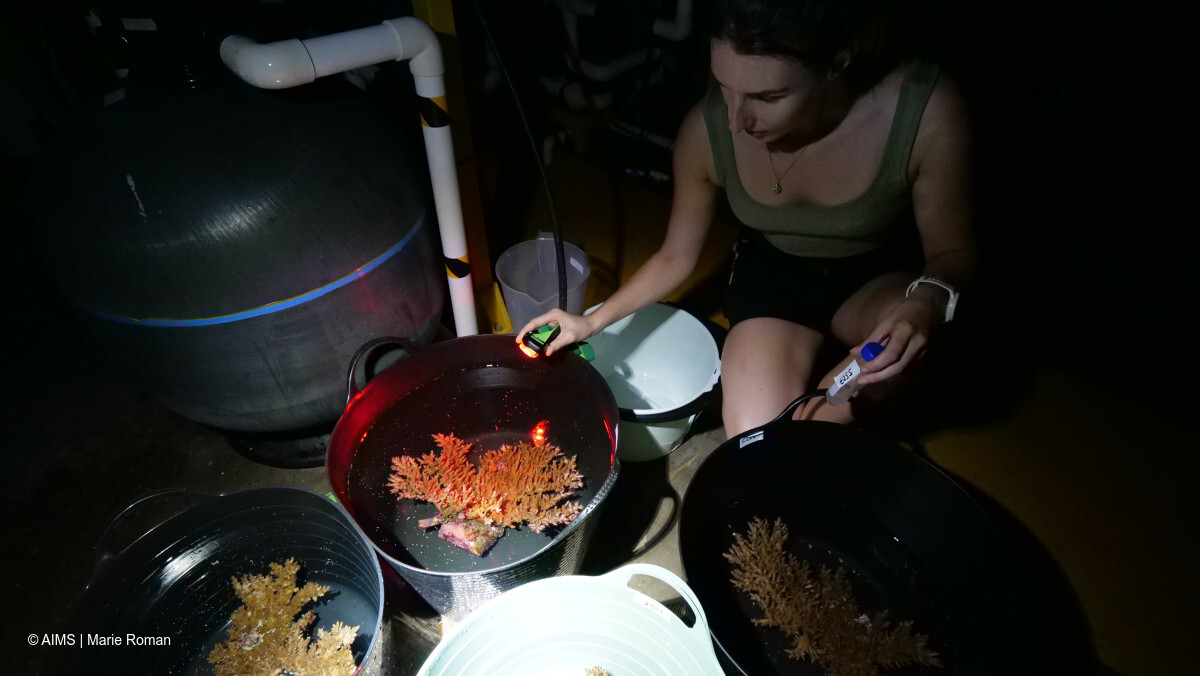Hybridisation is a process where eggs and sperm from two different species cross-fertilise to produce viable young.
In coral, this process occasionally occurs in nature. It increases genetic diversity and creates novel genetic combinations that may be beneficial for adaptation and confer resilience to changing climate conditions.
First-gen hybridisation success - from SeaSim to the sea
We can increase the rate of natural hybridisation by crossing the eggs and sperm of different species in the laboratory.
At AIMS, we have crossed the eggs and sperm of different pairs of species and trialled the resulting hybrids under stressful conditions in the National Sea Simulator (SeaSim) and in the ocean. Some hybrids grow and survive better than purebreds under today’s and predicted future climate conditions.
We have now grown baby hybrids into adults in the SeaSim. The adult hybrids were deployed onto the reef this year. This has allowed us to track, for the first time, how first-generation adult hybrids perform in the ocean.
The adult hybrids are capable of reproducing and generating a second generation of hybrids. This is significant as hybrids can sometimes be infertile.
However, the enhanced performance seen in first generation hybrids could be lost in the second generation due to mismatches between the genomes of the original parental species. It is important to test whether second generation coral hybrids show enhanced performance compared with their grandparents.
And back again - monitoring second-gen hybridisation fitness in 2024
During the upcoming spawning season, we will be bringing the adult hybrid corals back to SeaSim. We will collect their eggs and sperm and cross them to generate a second generation of hybrids. We will then assess the fitness of the second-generation hybrid corals.
If the second-generation hybrids perform well, then it would indicate that hybrids may be able to propagate on reefs and produce future generations of resilient corals. This work will provide us with critical insights as to whether interspecific hybridisation might be a useful tool for producing resilient material for reef restoration initiatives.
Researchers
Dr Annika Lamb
Dr Carys Morgans
This research is supported by AIMS
This page was updated October 2024
Feature Image:© Giacomo d'Orlando


